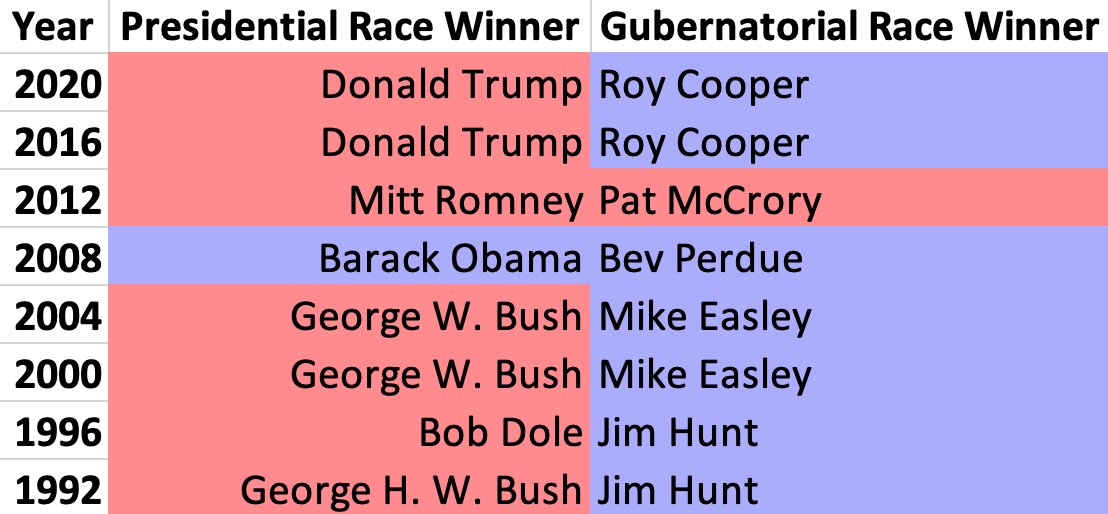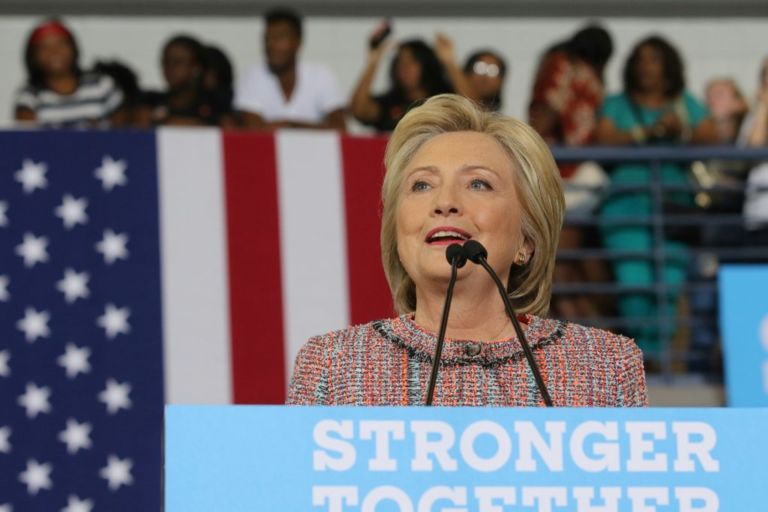As the manager of the John Locke Foundation’s and Carolina Journal’s social presence, I spend a lot of time on Twitter and Facebook reading comments. I answer questions, delete profanity, and really have a pulse on what our followers are thinking and feeling. Because of that, I continue to see one comment that constantly reappears; it goes along the lines of, “Noone who voted for Trump would vote for Roy Cooper; therefore, Roy Cooper is an illegitimate Governor, and the election must have been stolen.” I see this comment so often, I figured it deserved a response.
North Carolina has an extensive history of voting for a Democratic candidate for Governor and a Republican candidate for President. Over the past 30 years, North Carolina has done just that for six out of the past eight general elections.

This trend goes far beyond the past 30 years, though. North Carolina has only voted in four Republican governors since the beginning of the 20th century, yet has voted for a Republican presidential candidate 13 times in that same time frame. A split ticket in modern times is normal for North Carolina, not abnormal—and certainly not a sign of fraud.
If you are looking for a reason why the ticket split in this past election, I can’t account for every reason why that may be, but here are a few potential factors:
- Incubancy: Both Trump and Cooper were running as incumbents. Incumbents have higher chances of being reelected than challengers do being elected for their first term.
- Pandemic: Many people don’t like to “change horses midstream,” meaning, during times of uncertainty, some voters prefer consistency over shaking things up (think FDR during WWII).
- Drop-off votes: ~22,000 fewer people voted in North Carolina for governor than for president in the 2020 election.
That is not to say there were no issues in NC’s 2020 election. The NC State Board of Elections worked with one of the Democratic party’s favorite election litigators, Mark Elias, in a collusive settlement to upended NC voting rules after voting had already begun. And, despite North Carolinians having voted in favor of voter ID on a statewide ballot in 2018, lawsuits from the NAACP and others prevented the implementation of that policy for the 2020 election cycle.
As it stands now, 40% of North Carolinians do not believe the 2022 election will be free and fair, and there are legitimate concerns that we need to address to reinstitute public trust in our election system. That said, splitting tickets between Democratic and Republican candidates in North Carolina isn’t all that uncommon and is not, in and of itself, a cause for alarm.


